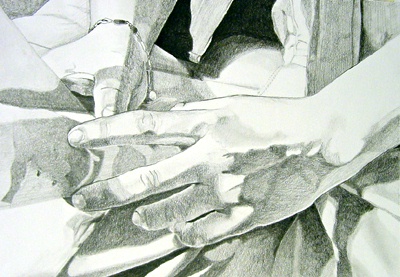All Nonfiction
- Bullying
- Books
- Academic
- Author Interviews
- Celebrity interviews
- College Articles
- College Essays
- Educator of the Year
- Heroes
- Interviews
- Memoir
- Personal Experience
- Sports
- Travel & Culture
All Opinions
- Bullying
- Current Events / Politics
- Discrimination
- Drugs / Alcohol / Smoking
- Entertainment / Celebrities
- Environment
- Love / Relationships
- Movies / Music / TV
- Pop Culture / Trends
- School / College
- Social Issues / Civics
- Spirituality / Religion
- Sports / Hobbies
All Hot Topics
- Bullying
- Community Service
- Environment
- Health
- Letters to the Editor
- Pride & Prejudice
- What Matters
- Back
Summer Guide
- Program Links
- Program Reviews
- Back
College Guide
- College Links
- College Reviews
- College Essays
- College Articles
- Back
Bloody Hands
Human society changes at a rapid pace and its power structure must do the same. Both Mark Twain, in The Adventures of Huckleberry Finn, and David Brooks, in “Our Machine Masters” explore how conventional systems of power must accommodate change.
In Twain’s Huckleberry Finn, power lies with white men and women—slaveholders. The source of this power is a sense of racial superiority, and the sense that slaves are not human. Huckleberry Finn says of Jim, in a moment of “profound” understanding, ‘“I do believe he cared just as much for his people as white folks does…It don’t seem natural, but I reckon it’s so’” (Twain 183). Huck has been taught that African slaves are less than white men. But Huck eventually concedes that Jim is “white inside,” (Twain 319) which is basically the same as understanding Jim’s humanity. In the spirit of this recognition, Huck grants Jim a measure of free will—and thus, power—by accepting Jim’s decision to stay with the injured Tom. After all, that’s what he would do with a white person.
Brooks, unlike Twain, is reluctant to acknowledge that our current power structure is ill-fitted to our current society. His argument revolves around artificial intelligence, which grants a human-esque capacity for reason to machinery. He explains, “A.I. will redefine what it means to be human. Our identity as humans is shaped by what machines and other animals can’t do” (Brooks). Following in the tradition of his 19th century white ancestors, Brooks defines “human” strictly. David Brooks wants to uphold human superiority—just as slaveholders wanted to extend the institution of Eurocentric dominance. But Brooks fears the possibility that machines will creep into the domains of reason and compassion—which, until now, have been exclusively human. The possibility that machines are capable of “human” thought and “human” emotion threatens Brooks and the equation that we hold as a tenet of our existence: to be human is to be powerful, and vice versa. If machines become “human”—that is, capable of wielding power—we will lose the privileged status we assume to hold in the world. That is the ultimate threat.
Twain understands that holding power is equated with being human. He extends humanity to Jim, an African slave, because Jim is powerful. Jim is both more emotionally mature and morally principled than Huck is. This gives him strength, and ultimately, power. Initially, all power lay firmly in Huck’s white hands. When Jim proves himself a better man than his white companion, he is liberated and given the control of his own life. This is a revolutionary change in the social hierarchy of control. David Brooks, however, finds himself clinging to conservative ideas about the proper placement of power. He fails to recognize that change is, ironically, the one constant of history. Changes in the ladder of power are inevitable, from the American Revolution to the Civil War to America’s shows of force in the Middle East. Without fail, power will change hands, even if it leaves one set bloody as it does. Where Brooks shies away this, Twain has the brio to acknowledge this.

Similar Articles
JOIN THE DISCUSSION
This article has 0 comments.
